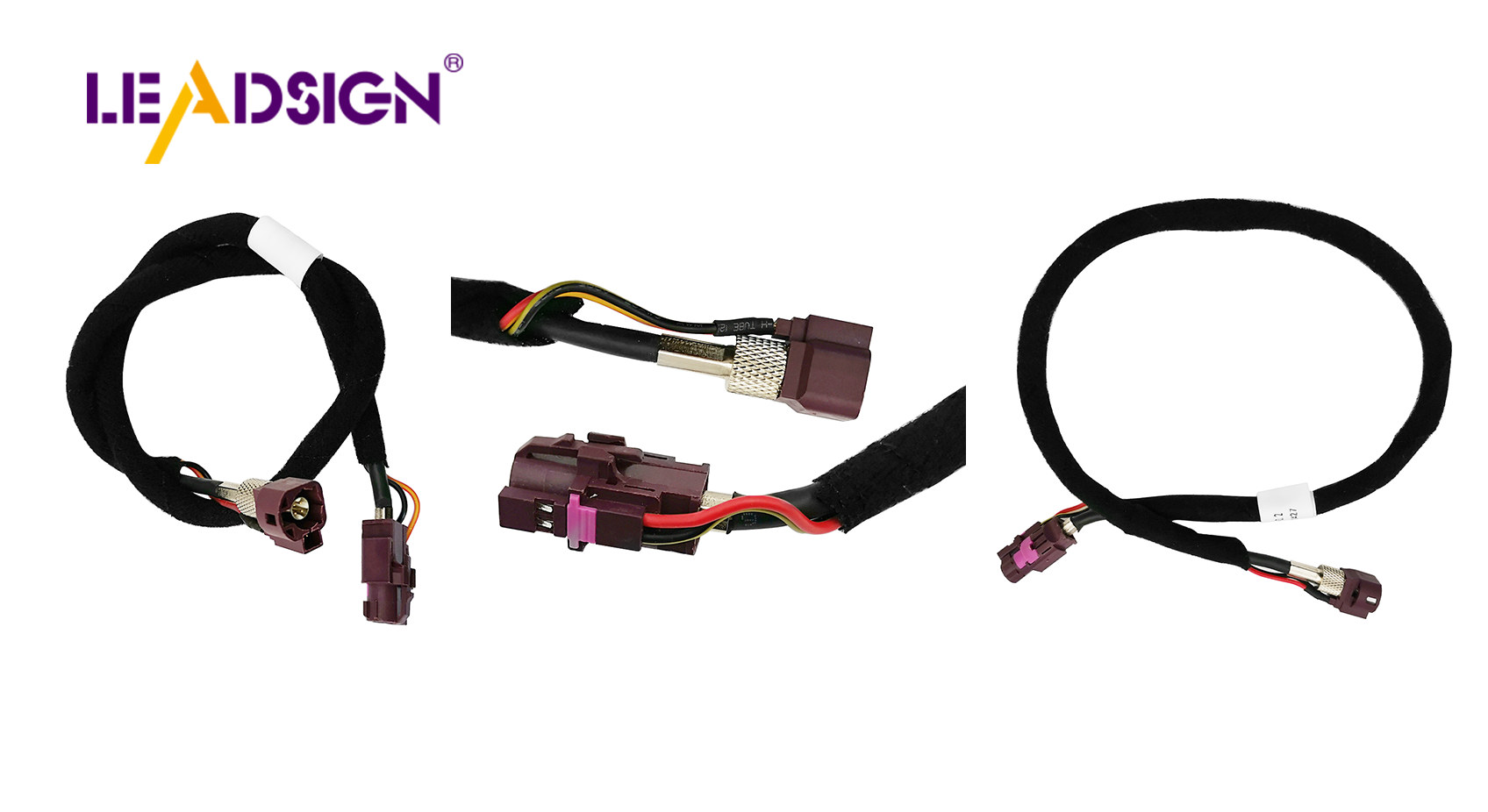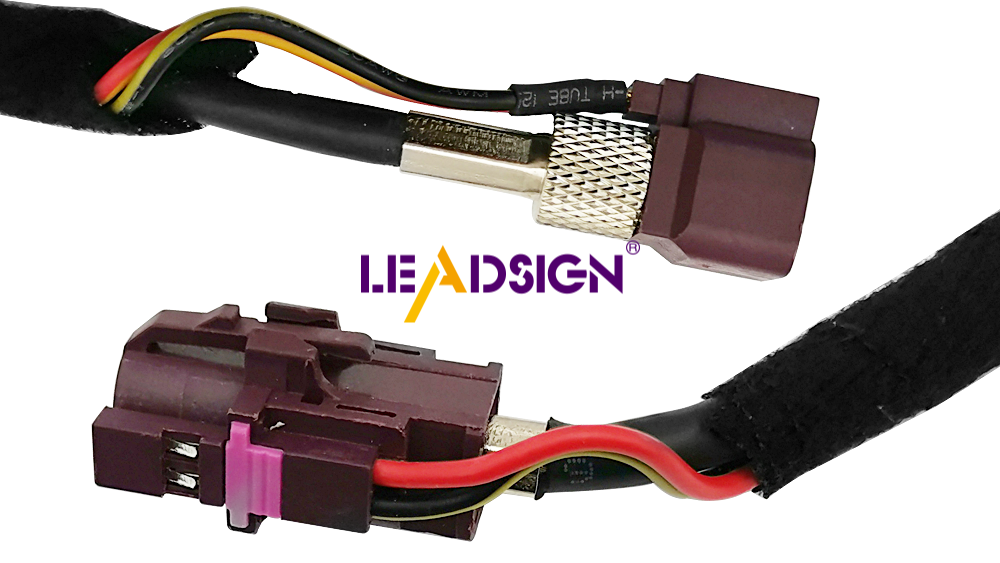A Guide to the Best Car Wire Connector Types

Choosing the right wire connectors automotive type is crucial. They ensure your car remains safe and reliable. Quality connectors reduce the risk of failures, which can occur due to multiple pins or harsh weather conditions. There are various connector types to meet different needs. This guide assists you in selecting the best automotive wire connectors, enhancing your car's performance and safety.
Understanding Car Wire Connectors
Definition and Importance
What are car wire connectors?
Car wire connectors link wires in your car. They keep connections stable and safe. These come in different types for specific car needs. Picking the right one makes your car work better and safer.
Why are they crucial in automotive wiring?
Car wire connectors help keep your car's electric system working well. They stop problems that might cause safety issues or breakdowns. Good connectors let electricity flow smoothly, helping lights and radios work right. Choosing the correct type is important for best performance.
Key Features to Consider
Durability and Material
Think about how strong the connector is when choosing one. Good ones use materials like nylon or plastic that last long. These materials handle tough weather like heat or rain well. Strong connectors last longer in your car's tough conditions.
Compatibility with Wire Types
Make sure the connector fits the wires in your car. Different ones fit different wire sizes and covers. Right matches stop loose wires or short circuits. Always pick a connector that fits your car's wiring needs.
Ease of Installation
How easy it is to install matters too. Some need special tools, others don't need any tools at all. Pick a connector you can handle easily without mistakes. Easy installs save time and make sure everything connects right.
Types of Car Wire Connectors

Picking the right wire connectors is key for your car. Different types do different jobs. Knowing them helps you choose well.
Crimp Connectors
Overview and Uses
Crimp connectors are common in cars. They join wires by squeezing a metal piece around them. This makes a strong link without soldering. They're great for quick fixes in your car's system.
Advantages and Disadvantages
Advantages:
Easy to Use: Install fast with few tools.
Reliable: Strong and handles shaking well.
Versatile: Fits many wire sizes.
Disadvantages:
Skill Needed: Must crimp right to avoid weak links.
Tool Need: Specific tools required for use.
Solder Connectors
Overview and Uses
Solder connectors melt solder to join wires. This makes a lasting bond, perfect for good flow of electricity. They're used where reliability matters, like in high-performance cars.
Advantages and Disadvantages
Advantages:
Strong Bond: Lasts long and stays strong.
Good Flow: Keeps electricity moving smoothly.
Disadvantages:
Takes Time: Soldering takes longer than crimping.
Skill Level Needed: Requires skills and gear to do right.
Quick Disconnects
Overview and Uses
Quick disconnects let you connect or disconnect wires easily. They're handy when changing parts often, like lights or audio systems in cars.
Advantages and Disadvantages
Advantages:
Convenient: Connect or disconnect fast without tools.
Flexible: Good for temporary setups or changes.
Disadvantages:
Less Strong: Not as secure as crimp or solder types.
Wears Out Easily: Frequent use can cause wear over time.
Knowing these options helps pick the best one for your car needs. Each has pros and cons, so think about what you need when choosing connectors.
Other Connector Types
Ring Terminals
Ring terminals are round connectors. They hold wires with a screw or bolt. They're used in cars for strong connections. You can attach them to battery ends or grounding spots.
Advantages:
Secure Connection: Keeps wires tight and safe.
Easy Installation: Simple to put on with basic tools.
Disadvantages:
Limited Flexibility: Hard to remove once attached.
Size Specific: Must fit the bolt size right.
Heat Shrink Connectors
Heat shrink connectors keep water out, stopping rust. Heat makes the tube shrink around the wire, sealing it tight. They're great for tough weather places.
Advantages:
Waterproof Seal: Stops water and rust.
Durable: Stands up to bad weather.
Disadvantages:
Requires Heat Source: Needs a heat gun to use.
Time-Consuming: Takes longer than other types.
Multi-pin Connectors
Multi-pin connectors join many wires to one part. They're found in car wiring harnesses, keeping things neat and organized.
Advantages:
Efficient Organization: Neatly connects many wires.
Versatile: Works for different uses like infotainment systems.
Disadvantages:
Complexity: Hard to install without knowing how.
Cost: More costly because they're complex.
Knowing these connector types helps you choose well for your car's wiring needs. Each type has its own good points, so think about what you need when picking connectors.
Uses of Car Wire Connectors
Car wire connectors are important for many car jobs. They help your car's electric parts work well and safely. Knowing how and where to use them helps you pick the right ones.
Common Car Uses
Electric Parts
In cars, wire connectors keep electric parts connected. They join things like the battery and starter motor. These connectors need to handle tough stuff like heat and shaking. OEM Automotive Electrical Wiring Connectors have crimp barrels and gold plating for good flow of electricity over time. They're great for electric parts that need to be reliable.
Music Systems
For music systems, wire connectors link speakers, amplifiers, and head units. They keep sound clear by holding a steady connection. Multi-pin connectors connect many wires at once but need careful handling to stop problems like rust that can mess up sound.
Lights in Cars
Car lights need wire connectors to join headlights, taillights, and inside lights. These must be strong and water-resistant to avoid rusting. Heat shrink connectors are good here because they seal out water, keeping connections safe from weather.
Special Uses
Fast Cars
Fast cars need wire connectors that handle more power and rough conditions. These must spread power well to things like turbochargers. Connector Problems and Solutions show why special greases stop rusting in these settings.
Off-Road Cars
Off-road cars face dirt, water, and bumps. Wire connectors here must be strong and sealed tight to not fail. OEM car wire connectors with molded grommets or silicone seals keep out water and dust, perfect for off-road use.
Picking the right wire connectors makes your car last longer and work better. By knowing their uses, you choose what keeps your car safe.
How to Pick the Best Car Wire Connectors
Knowing What You Need
Figuring Out the Use
First, know what you need connectors for. Are they for music, lights, or engine parts? Different jobs need different connector types. For example, crimp connectors are good for quick fixes. Solder connectors last longer. Knowing the job helps you choose right.
Thinking About Weather and Place
Think about where your car goes. Is it in bad weather or bumpy roads? If yes, pick connectors that can handle it. Heat shrink connectors keep water out, great for wet places. Think about how heat and wetness might affect them to make sure they last long.
Looking at Connector Types
Checking Features and Good Points
See what each connector offers. Crimp connectors are easy and fit many wires. Solder connectors make strong links. Quick disconnects let you change things fast. Check these based on what you need. Good connections stop problems like short circuits.
"Losing connection can cause big safety issues."
Knowing this shows why picking the right connector is important.
Thinking About Cost
Money matters when choosing too. Some cost more because they're complex or made of special stuff. Multi-pin connectors might cost more but keep wires neat. Balance cost with what each type gives you. Good connectors save money by avoiding repairs later.
By knowing your needs and comparing choices, you can pick the best wire connectors for your car. This keeps it safe and working well.
Choosing the right wire connectors is key for car safety. Good connectors help power flow well and stop problems from water or shaking. Here's a quick summary:
Importance: Connectors keep your car's electric parts working.
Key Points:
Think about strength, fit, and easy setup.
Know different types like crimp, solder, and quick disconnects.
Match them to jobs and weather conditions.
Use this info to pick connectors that make your car last longer. Buying good ones now can prevent expensive fixes later.
See Also
Exploring Ford Fakra Connectors: Benefits, Uses, and Installation Tips
In-Depth Look at Fakra Connectors: Benefits, Uses, and Installation Advice
Significance of Fakra Connectors in Modern Vehicle Technology

